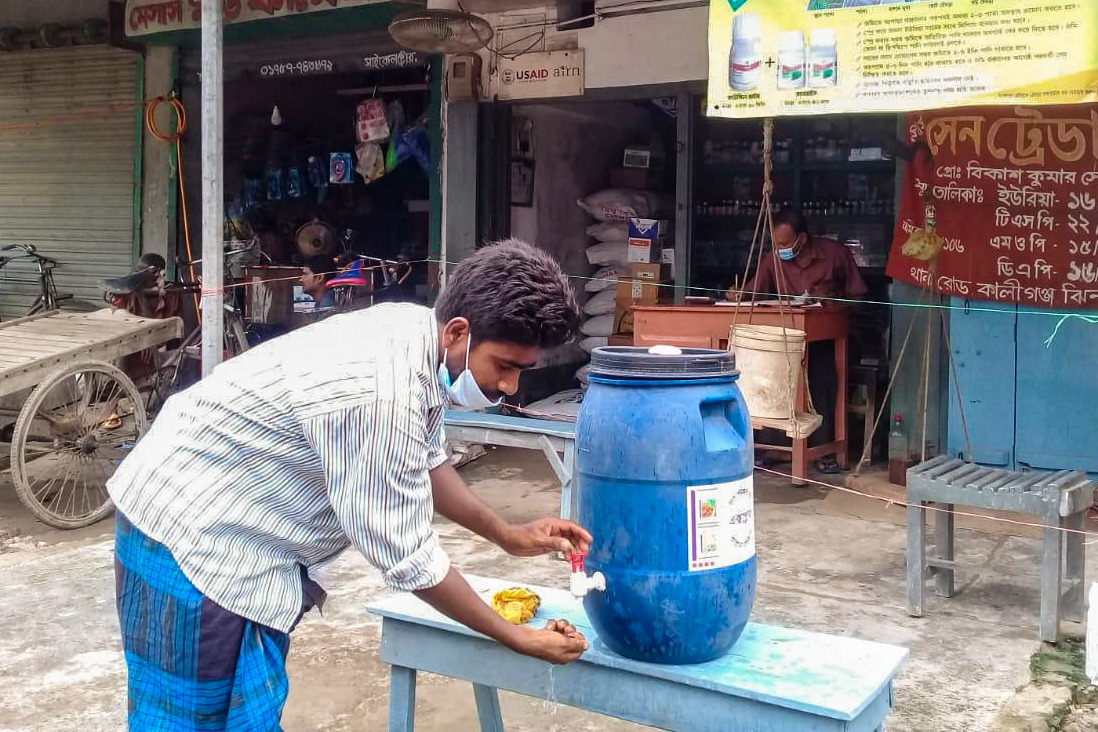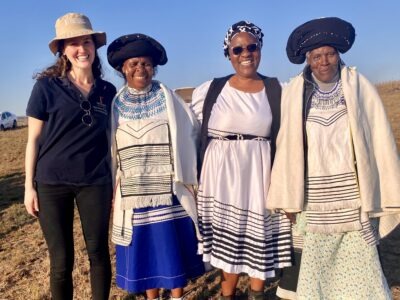
One of the many damaging side effects of the COVID-19 pandemic in Bangladesh was a blocking of critical agricultural inputs, such as seeds and fertilizers, from reaching smallholder farmers. Input companies and their sales and distribution channels faced enormous challenges. For one, a sudden government-imposed restriction on travel constrained many companies from distributing their products before and during the growing season. Retailers who normally procured inputs on a cash basis each week experienced cash flow problems without their normal supply.
These disruptions to last-mile delivery eventually reached farmers. With a limited availability of inputs, farmers either invested less in their crops, which resulted in poor yields, or invested more than usual when they could find inputs, which reduced their profitability.
To help farmers access supplies during the pandemic, the Feed the Future Bangladesh Rice and Diversified Crops (RDC) Activity partnered with six private sector companies. The five-year activity, funded by USAID and implemented by ACDI/VOCA, supports smallholder farmers in southwestern Bangladesh by promoting diversified approaches for managing farms focused on rice and other high-value, nutrient-rich crops with the goal of improving food security, nutrition, and incomes.
Activity Links Retailers and Farmers
With these six companies, the RDC Activity established 650 “safe retail points” where retailers could sell inputs to farmers. At each of these sites, handwashing stations and personal protective equipment were available. By creating a new, safe link between input retailers and their customers, relationships improved and both benefited. Rejaul Haque, a retailer of Auto Crop Care Limited in Chuadanga, said that he began to see improved earnings for his business.
“As the small-scale farmers started coming to the retail shops, the demand for agri-products increased, and the regular supply chain mechanisms resumed despite the COVID-19 crisis.”
— Rejaul Haque, retailer, Chuadanga
The “safe retail points” not only allowed retailers to build trust with farmers but also helped promote important health protocols during the pandemic.
“Safety measures in the nearby retail shop have enabled farmers to gather awareness on hygiene issues and gain confidence to continue regular purchases,” said Moslem Uddin, a farmer from Moheshpur Upazila. “This precaution has later turned into regular practice in the household.”
An estimated 236,520 farmers benefited from the “safe retail points” set up by the RDC Activity in an effort to ensure business continuity during the COVID-19 crisis.
Learn more about the Feed the Future Bangladesh Rice and Diversified Crops (RDC) Activity.
Learn more about our work in Bangladesh.





